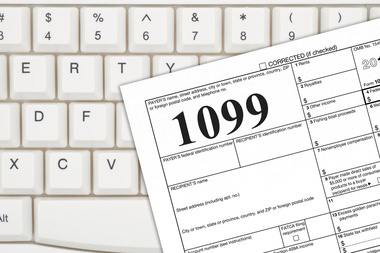Tips on Managing the Ubiquitous Form 1099
One of the most important tax and payroll issues a company has to address is who is an actual employee and who is an independent contractor. Once you have that worked out, your next step is making sure each category of workers gets the right forms. True employees get a Form W-2 each year, and freelancers — independent contractors — get a Form 1099-MISC. This form can be used for a variety of payments, and one of the most common and significant uses is for independent contractors.
You must issue a Form 1099-MISC to each nonemployee you pay $600 or more during the year, and this is a requirement for all trades or businesses. For the purpose of this form, even a nonprofit is considered a trade or business. Federal, state and local governments also have to issue these forms.
Corporate payments
The adaptable Form 1099-MISC is also required in a variety of payments to corporations:
- Medical and health care payments.
- Attorneys’ fees.
- Substitute payments in lieu of dividends or tax-exempt interest.
- Payments by a federal executive agency to vendors for services.
However, except for the specified situations, Form 1099-MISC is not typically used for corporate payments. Indeed, there are many payments for which Form 1099-MISC is not appropriate:
- Payments for merchandise, telegrams, telephone, freight, storage and similar expenses.
- Payments of rent to real estate agents.
- Military differential wage payments made to employees while they are on active duty in the armed forces or other uniformed services (report on Form W-2).
- Business travel allowances paid to employees (may be reportable on Form W-2).
If you’re not sure which form to use and when, give us a call. We’ll be happy to help you sort out the details.




